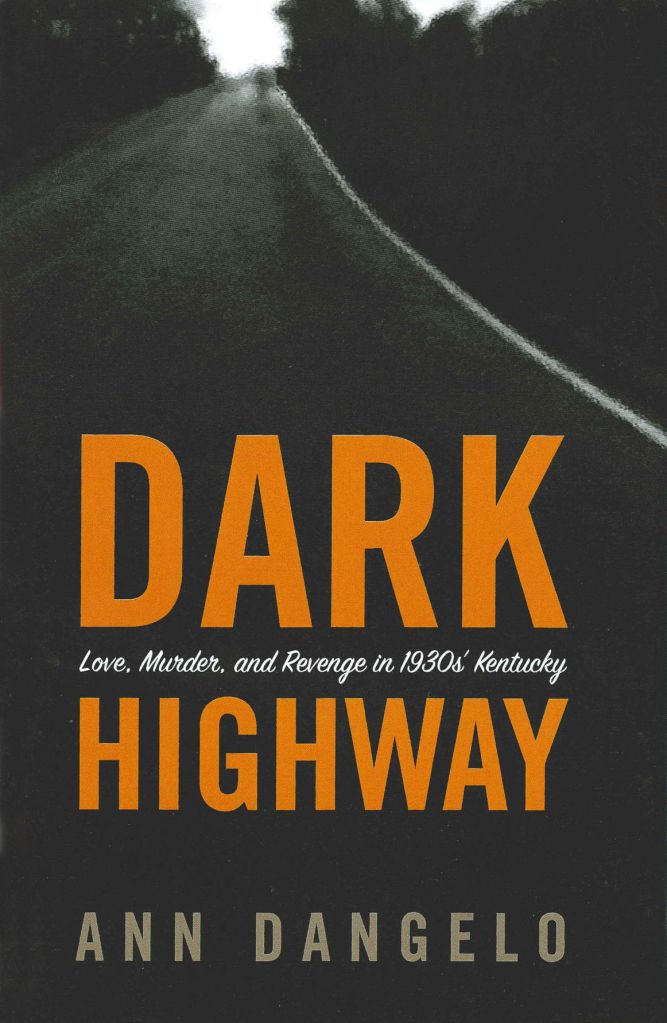Book review: ‘Dark Highway’
Published 12:00 am Sunday, November 12, 2017

- Book review: 'Dark Highway'
“Dark Highway: Love, Murder and Revenge in 1930s’ Kentucky” by Ann DAngelo. Louisville: Butler Books, 2016. 405 pages, $29.95
Henry H. Denhardt was undoubtedly Bowling Green’s best-known resident during the 1920s and early 1930s. Born in 1876, he attended Bowling Green’s public schools, earned a law degree from Cumberland University, served 10 years as a Warren County judge, won honors during the Spanish-American War and was cited for valor and promoted to lieutenant colonel during World War I. As head of a National Guard unit that controlled a 1923 labor riot in Newport, he was promoted to brigadier general. Two years later, he was elected lieutenant governor of Kentucky and thus presided over the state Senate. He also headed the military group sent to help rescue Floyd Collins in 1925. In 1931, Kentucky Gov. Ruby Lafoon appointed Denhardt to the post of adjutant general, and in that position he led 700 guardsmen into Harlan County in 1935 to oversee a local election. But alas – Harlan officials accused him of vote-tampering, and the local sheriff offered a 98-cent reward for Denhardt’s arrest. The press enjoyed a heyday of accusations and suppositions. One news sheet even quoted a state official who labeled him “Henry Hitler Denhardt” because he tried to influence an election with “bayonet rule.”
Denhardt’s personality seemed to change during the late 1920s, probably due to political disappointments and to his consumption of alcohol, and he gained a reputation for being “difficult.” During a 1931 election melee, he was shot in the back. In 1932, Denhardt’s wife of 28 years divorced him. Shortly thereafter, he purchased a farm in Oldham County, and he and his maiden sister moved to their new home in 1936.
Shortly after arriving in Oldham County, Denhardt met and fell in love with Verna Garr Taylor, an attractive widow and mother of two teenage daughters. With the help of a younger male employee to whom she may have been romantically attracted, Verna had successfully operated her late husband’s laundry business, not an easy task during those difficult economic years. In August 1936, following several months of “dating,” Denhardt proposed and gave Verna an expensive engagement ring.
On a chilly November night in 1936, as Denhardt and Verna drove along a “dark highway” in Henry County, their car developed trouble and stalled. Denhardt left Verna in the car and went for help. On his return he found her dead, shot through the heart. An examining trial seemed to indicate murder rather than suicide, and Denhardt was accused of killing Verna. Thus began one of the most sensational cases in Kentucky’s history.
Local witnesses, curious residents, experts and reporters from across the nation packed the Henry County Courthouse for Denhardt’s examining trial. After much wrangling, a trial date was set for early January, but the “great flood of 1937” forced the trial’s postponement until late April. For five days, a courthouse packed with friends, relatives, curious onlookers and members of the press listened to accusations and suppositions and witnessed courtroom antics, theatrics, melodrama and lengthy summations. After two days of final arguments, the jury retired. Eighteen hours later, the jury reported it was “unable” to reach a verdict. Thus, a second trial was scheduled for September in nearby Shelbyville.
On the evening before the second trial, as Denhardt and his attorney, Rodes K. Myers, walked from the restaurant where they had dined to their hotel, Verna’s three brothers suddenly appeared. Denhardt saw them and ran – and one of the brothers shot and killed him. Thus, the three Garr brothers were arrested and tried for Denhardt’s murder. And again the courthouse overflowed with curious local folks and reporters from across the nation.
How did this second trial end? Who killed Verna? Why? Was there a secret lover involved? Who shot Denhardt? What evidence and proof was presented? Or omitted? Ann DAngelo, a practicing attorney, has studied the court record, lab reports, newspaper accounts, attorney correspondence and other records concerning the Denhardt-Garr case. Her resulting book, “Dark Highway,” provides a well-researched, informative and fascinating account of romance, murder and revenge.
– Reviewed by Nancy Baird, professor emeritus, Department of Library Special Collections, Western Kentucky University.
– Editor’s note: Ann DAngelo will speak at WKU Libraries’ Kentucky Live! Series at 7 p.m. Thursday at Barnes & Noble Booksellers at 1680 Campbell Lane. A book signing will follow.





